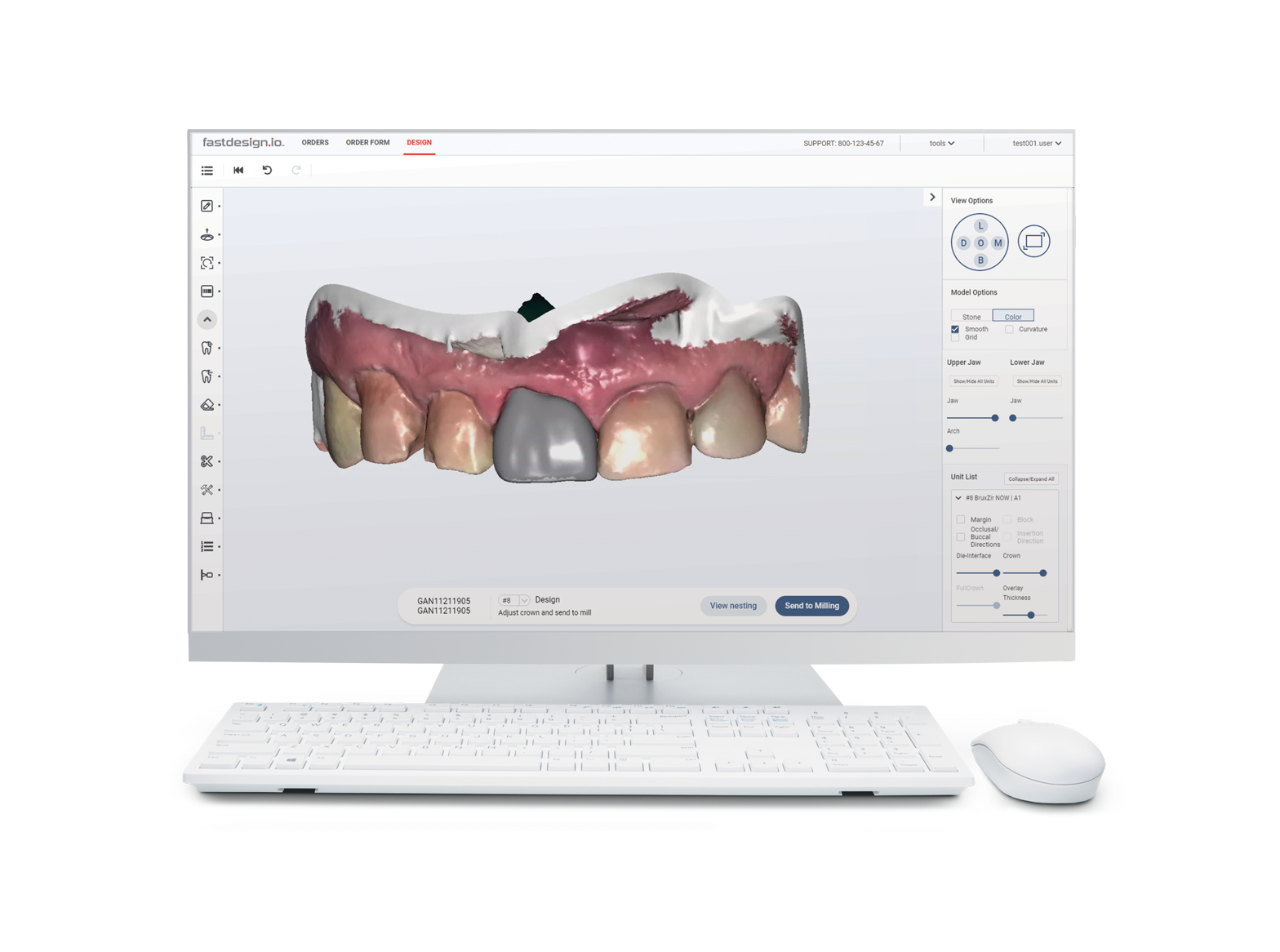Experience Superior Tooth Replacement with Modern Dental Implants
Dental implants have become a preferred choice for people in search of to switch missing teeth. However, a priority that often arises is whether or not these implants could cause sinus problems. Understanding the anatomy of the mouth and the sinuses can shed gentle on this problem, as well as the various elements that contribute to such issues.
When dental implants are placed in the higher jaw, they may come into close proximity to the maxillary sinuses. These sinuses are situated above the higher teeth and can be affected through the implant process. The process typically includes drilling into the jawbone to insert the titanium submit that may serve as the dental implant root. If this isn't performed with precision, it’s possible for the implant to protrude into the sinus cavity.
One main issue that may contribute to sinus problems is the health of the jawbone. If there may be vital bone loss within the space the place the implant is being placed, the surgeon may have to conduct a bone graft. This can elevate the risk of problems, together with potential points with the maxillary sinuses, because the graft material might penetrate the sinus house.
Even if the bone is deemed sufficient for the implant, there can still be risks associated with surgery. The insertion of an implant creates a minor surgical wound. As with any surgical procedure, there is a risk of infection. If an infection happens within the area surrounding a dental implant, it may doubtlessly spread to the sinus cavity, leading to sinusitis or other problems.
Professional Implant Dentistry for Long-Term Tooth Replacement
Some patients may experience sinus-related signs post-surgery that mimic sinusitis but are not as a end result of an actual infection. This condition is known as post-operative sinusitis. Symptoms may embrace nasal congestion, facial pain, or stress. The discomfort is likely related to inflammation or irritation within the tissues of the sinus, rather than an actual infection.
To mitigate the risks of sinus complications throughout dental implant surgery, a radical pre-operative evaluation is essential. Dentists usually use imaging techniques, such as CT scans, to gauge the connection between the upper jaw and the maxillary sinuses. This helps in determining the exact placement of the implants without invading the sinus house.
Another significant consideration is the expertise and ability of the dental surgeon performing the implant. A certified and skilled practitioner is much less likely to lead to issues. Advanced coaching in dental surgery reinforces techniques that can decrease risks associated with sinus problems.
Advanced Tooth Replacement Options with Dental Implants

Patients also needs to engage in open communication with their dental professionals about their medical historical past and any previous sinus issues. If a patient has a historical past of frequent sinus infections or different sinus conditions, this ought to be discussed earlier than the implant procedure. The dentist might recommend extra measures or adjustments to the treatment plan based on this information.
Post-operative care is important in preventing complications after implant surgery. Patients ought to comply with their dentist's guidelines concerning oral hygiene and any prescribed drugs. This may help scale back the risk of infection and promote correct therapeutic.
Dental Implants that last a lifetime and provide smiles
Should any sinus-related symptoms come up after the implant, sufferers are inspired to hunt counsel from their dental provider. Early intervention can handle potential issues before they escalate, guaranteeing that each the dental implant and sinus health remain intact.

In evaluating the question of whether or not dental implants may cause sinus problems, it's important to contemplate each the risks and the benefits. When carried out correctly and with correct planning, dental implants can efficiently restore function and aesthetics without important complications. Though the danger of sinus points exists, it is usually minimal and manageable for most patients.
Implants with Long-Lasting Dental Implants for Better Oral Health
Regular follow-ups with the dentist after resource placement are beneficial to observe the condition of both the dental implants and the sinus space. This ongoing analysis may help catch any potential issues early, permitting for immediate intervention.
Overall, while sinus problems can come up from dental implants, the incidence is comparatively low when proper methods and precautions are adopted. look here With sufficient pre-surgical planning, skilled execution, and diligent post-operative care, patients can usually enjoy the advantages of dental implants without experiencing significant sinus problems.
Maintaining open traces of communication with healthcare providers enhances the likelihood of a successful end result. By understanding the anatomy concerned and taking acceptable precautions, both patients and practitioners can work collectively to reduce potential risks related to dental implants and sinus health.

As dental know-how continues to advance, the methods and materials utilized in implant placement are additionally enhancing. Innovations might help to further cut back the chances of sinus complications, offering larger success charges for individuals requiring dental implants. Active involvement in one’s dental health, coupled with professional steering, can result in satisfying outcomes without the common worries surrounding sinus issues.
Procedures for Professional Dental Implants for a Confident Smile
Engaging in thorough research and asking questions can enhance affected person knowledge and confidence. This proactive approach can lead to happier experiences and higher outcomes within the realm of dental health.
The partnership between affected person and dental professional is critical in navigating any concerns that will come up, making certain that sinus problems are addressed promptly and effectively when they occur. In summary, whereas there is a potential for dental implants to be associated with sinus problems, proactive measures can mitigate such risks considerably.
Customized Tooth Replacement Using Johnstown Dental Implants
- Dental implants positioned within the upper jaw can potentially protrude into the sinus cavities, resulting in discomfort or sinusitis if not correctly positioned.
- Individuals with preexisting sinus points could also be at an elevated risk for issues following dental implant surgery.
With Expert Dental Implants in Johnstown, You Can Get a Full Smile.
- Sinus membrane perforation is a possible risk in the course of the placement of higher jaw implants, which may result in inflammation and sinus-related symptoms.
- The use of bone grafting to reinforce the jaw may inadvertently affect the sinus membrane, doubtlessly inflicting postoperative sinus problems.
Comprehensive dental implant care for long-lasting results
- Regular follow-ups and imaging assessments post-implant process may help monitor any adjustments or points related to the sinus cavities.
- Patients should inform their dentist of any history of sinus infections or conditions to mitigate risks related to the process.
- The approach and experience level of the oral surgeon play an important function in minimizing sinus problems when inserting implants within the upper jaw.
- Aftercare is important; sufferers experiencing uncommon sinus discomfort after implantation should seek immediate analysis to discover out the cause.
Johnstown's Top Implant Dentist for Long-Term Success.
The Best Implant Dentistry in Johnstown
- Proper surgical planning that features imaging studies might help keep away from complications associated to sinus involvement during implant placement.
- Not all sufferers will expertise sinus problems from dental implants, and many obtain successful outcomes without any sinus-related points.undefinedCan dental implants cause sinus problems?
What are the potential causes of sinus problems after dental implants?
Professional Implant Dentistry for Long-Term Tooth Replacement
Sinus issues can arise if the dental implant is positioned too high, encroaching on the sinus cavity. This can result in infections or sinusitis. Proper imaging and planning during the implant process are important to attenuate risks.
How can I know if my sinus problems are related to my dental implants?
With Advanced Dental Implants, You Can Have a Excellent Smile.
Symptoms such as nasal congestion, pain in the sinus space, or drainage may point out a connection. Consulting with your dentist for an analysis, together with X-rays, can help decide if the implants are a contributing factor.
What should I do if I suspect my dental implants are inflicting sinus issues?
(Premier Implant Dentistry Services in Johnstown)
Contact your dentist immediately. They can assess your scenario, perform needed exams, and provide therapy options if the implants are indeed affecting your sinus health.
Are some people more at risk for sinus problems with dental implants?
(Sturdy periodontal implants for a long-term dental health)
Advanced Dental Implant Replacement Options
Yes, individuals with pre-existing sinus conditions, such as persistent sinusitis or a historical past of sinus infections, may be at greater risk. Personal medical historical past ought to be discussed with the dentist earlier than the process.
What preventive measures can be taken to keep away from sinus problems during dental implant placement?
Using superior imaging technologies like cone beam CT scans helps guarantee accurate placement of the implant. Additionally, an skilled oral surgeon will consider the anatomy of the sinus in the course of the procedure.
How typically do sinus problems occur following dental implant surgery?
Restore Your Confidence with Advanced Implant Dentistry in Johnstown:
While sinus problems are relatively uncommon, they can occur in a small share of instances. Proper planning and placement see this site considerably scale back the chance of these issues.
Can a sinus raise procedure alleviate the danger of sinus points after getting an implant?
Yes, a sinus raise can raise the sinus flooring and implant the bone graft to create extra space for the implant. This procedure might reduce the danger of sinus issues in certain instances.
Professional Implant Dentistry for Long-lasting Tooth Replacement
What are the everyday remedies for sinus points caused by dental implants?
Treatment could include antibiotics for infections, decongestants, or, in extreme circumstances, surgical intervention to deal with any anatomical points or sinus drainage problems. Always seek the advice of your dental skilled for a tailor-made approach.
Comments on “Implants that are Dependable and Tough for a Gorgeous Smile”